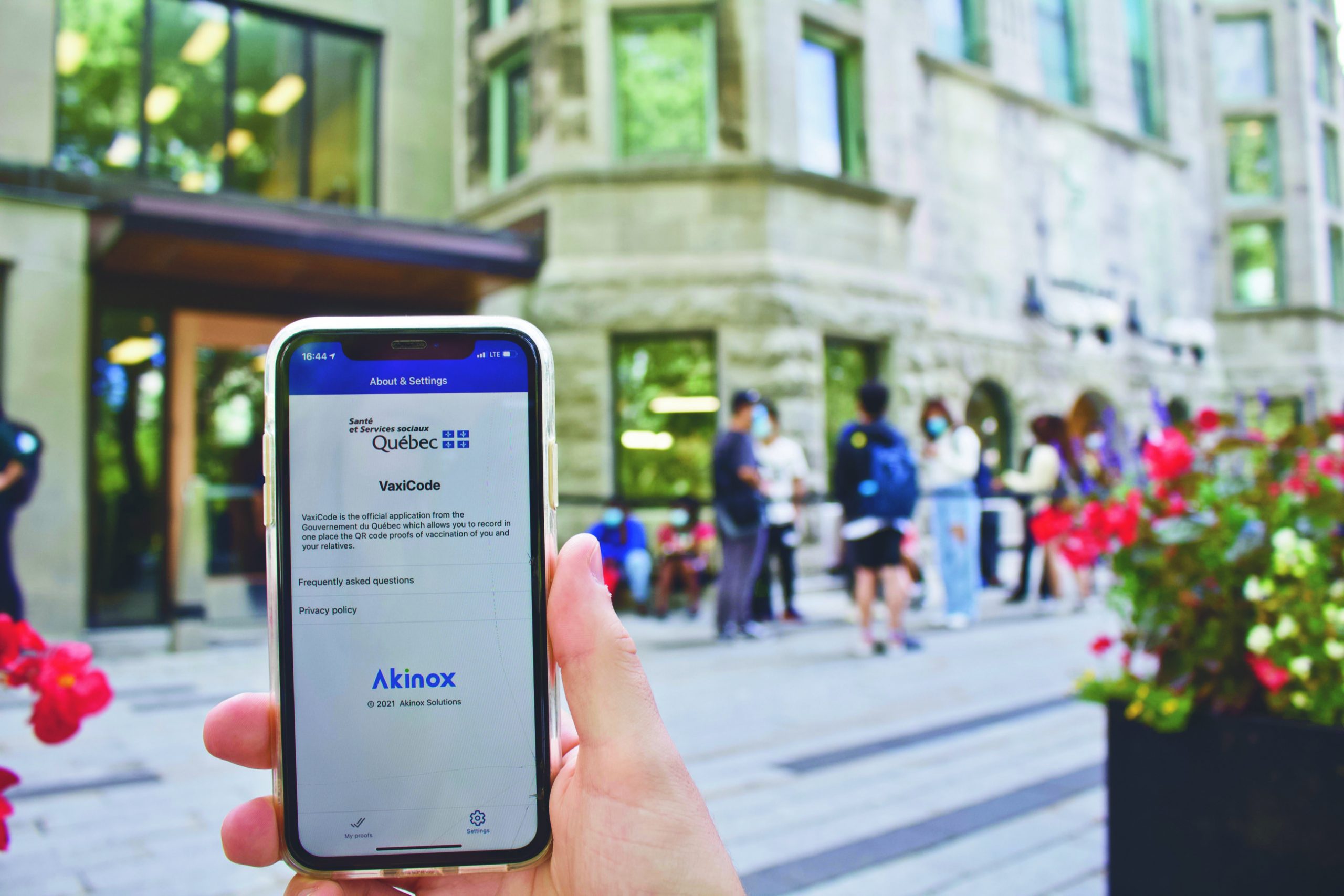As of Sept. 1, accessing non-essential services in Quebec will require a COVID-19 vaccination passport, which is a government proof of full vaccination. While curricular activities at McGill will not require the passport for participation, much of student life will.
What is the vaccine passport?
The vaccine passport is a Quick Response (QR) code issued by the Quebec government that confirms an individual’s double-vaccination status when scanned via the VaxiCode app. Individuals must present government-issued photo ID and this QR code—either on paper, in PDF format on a mobile device, or on the VaxiCode app—to access non-essential events and services.
How can students get a vaccine passport?
Fully vaccinated students wishing to obtain a vaccine passport are individually responsible for acquiring this QR code. Those vaccinated in Quebec who have not already received their QR code by email or text can download it online through the Quebec government’s self-service portal.
Those vaccinated internationally or out-of-province must go to a clinic to register their proof of vaccination before downloading their QR code. One can register their out-of-province vaccination either by booking an appointment or by attending a walk-in vaccination clinic, where government-issued photo ID and official proof of vaccination documents are verified.
The vaccines recognized for the Quebec vaccine passport are Pfizer, Moderna, AstraZeneca/Covishield, and Janssen/Johnson & Johnson; individuals who have received doses of a vaccine excluded from this list can receive an additional dose of an mRNA vaccine in Canada a minimum of 28 days after their last dose.
How do vaccine passports affect student life?
The list of non-essential activities at McGill that will require the vaccine passport include practising varsity or recreational sports and attending sporting events, concerts, non-curricular academic conferences, and other performances as an audience member. Additionally, students will need the vaccine passport to access fitness centres and common areas in student residences such as TV rooms. Students with vaccine passports will have access to dine-in services while those without passports will only be able to access take-out services.
Students will not need the vaccine passport to access non-curricular or health-related student services, their personal residence rooms, and associated essential common areas such as washrooms, libraries, study hubs, and flex-spaces.
McGill media relations officer Frédérique Mazerolle wrote to The McGill Tribune about the university’s future plans involving the vaccine passport.
“Our utmost priority has always been the health and safety of our students and staff,” Mazerolle wrote. “McGill has been working with and continues to work with the various government authorities to align with directives, and to adapt our plans and put in place the necessary measures that will ensure the successful return of students and employees to our campuses.”
How is the McGill community reacting to this measure?
The vaccine passport mandate has provoked controversy, both about the limits of government power in a pandemic and about how efficient vaccine passports are at limiting the spread of COVID-19.
Douglas Farrow, a professor of theology and ethics at McGill, expressed his views on vaccine passports in an open letter published on August 30.
“Students, in my opinion, would be very foolish to trade their rights, liberties, and personal autonomy for ‘protection’ they do not need,” Farrow wrote in an email to the Tribune. “That does not work very well, and that puts their health at risk in a new way.”
In an email to the Tribune, the Students’ Society of McGill University (SSMU) President Darshan Daryanani explained that he believes the vaccine passport should be needed to access the over 250 clubs and services at McGill, and the large cultural and fundraising events to prevent further outbreaks and campus lockdowns.
“We are here to support the student activities with tools and resources as best we can,” Daryanani wrote. “While the administration claims that a student without a vaccine will ‘miss out on the full and fun McGill experience,’ at SSMU, we hope to provide alternative events to respect the safety of all.”








